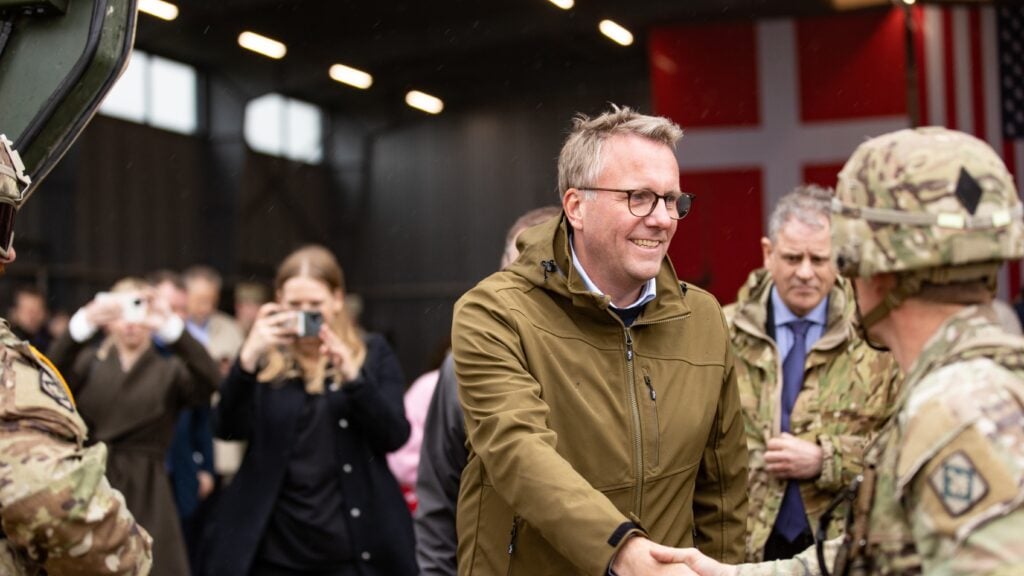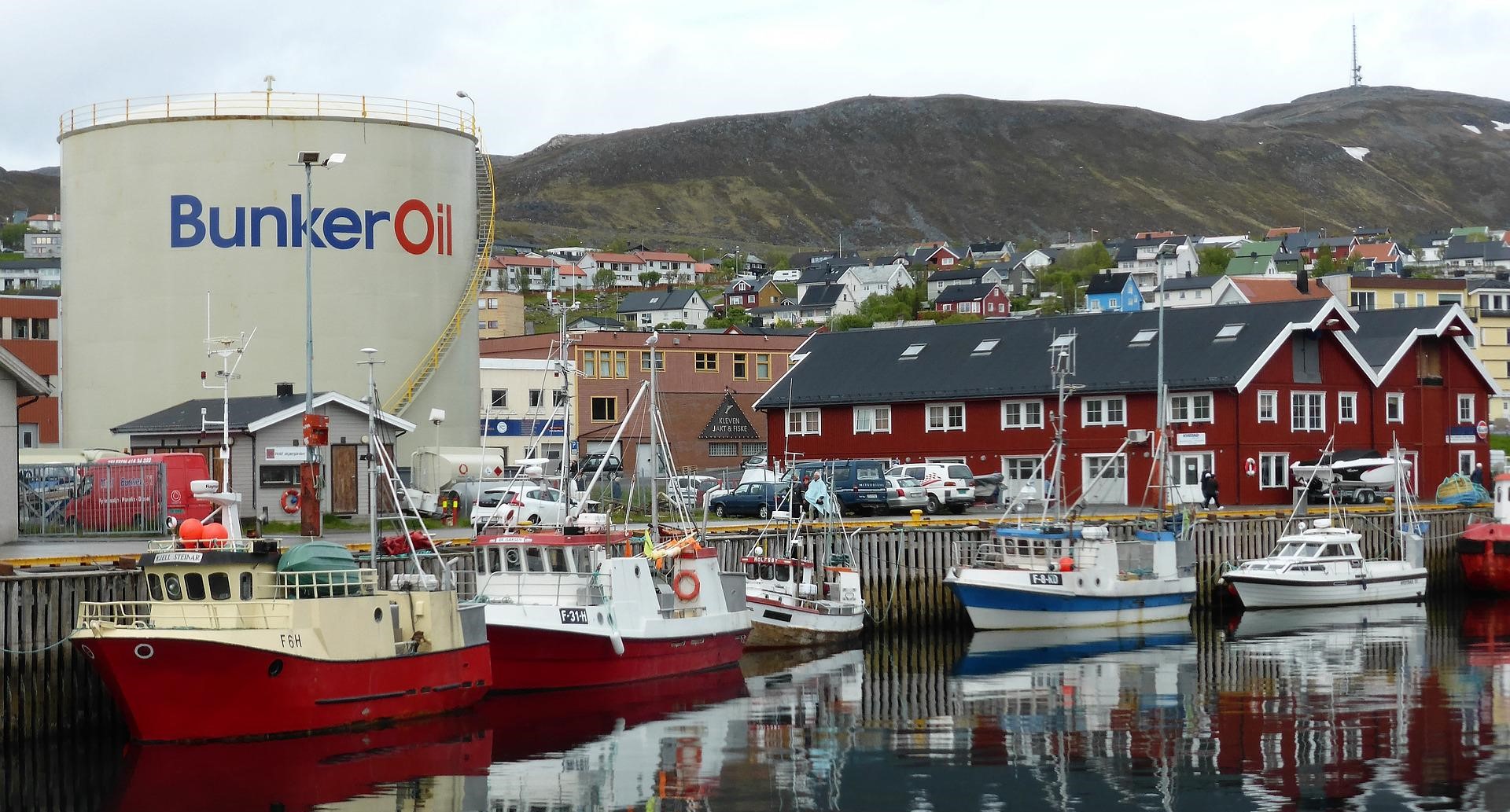Danish Defense Minister Morten Bødskov shakes hands with a U.S. Army soldier in Bornholm, Denmark, May 24, 2022. (US Army/Angelo Mejia)
WASHINGTON – Following Russia’s invasion of Ukraine and Sweden and Finland’s NATO bid, the Nordic nations are looking to deepen their cooperation, with a focus on both the Baltic Sea and the Arctic, according to the Danish defense minister.
Above all, the two new NATO members “will move NATO north, so to speak,” said Morten Bødskov on Wednesday at the Atlantic Council in Washington. “What the Nordic countries are striving for together is a stronger Nordic voice within NATO and also within the European Union.
“Denmark will be at the center of this, with tensions with Russia in the Baltic region, but also the Far North, the Arctic, will be an area with more tensions in the future. So Denmark is the focus. Nordic cooperation is also at the heart of this,” he continued.
Sweden and Finland avoided joining NATO for decades, but were both members of the European Union. Norway has been a member of NATO since it was founded in 1949, but has not joined the EU. And Denmark, while in both camps, has historically had restrictions that would prevent it from engaging in any EU defense activities.
RELATED: Norway’s Defense Chief: Finland, Sweden in NATO ‘Opens Up Lots of Opportunities’
But in June, a Danish referendum showed nearly two-thirds of Danish voters backed lifting those restrictions, paving the way for Copenhagen to get involved in EU defense policy and potentially invest in defense activities like the Permanent Structured Cooperation (PESCO) investment program . Bødskov noted that this will make it easier for Denmark to meet its NATO spending targets, while also increasing the ability for cross-Northern industrial programs.
This referendum, combined with Sweden and Finland joining the Alliance – to date, 24 of NATO’s 30 countries have ratified their applications for membership – paves the way for a rethink of how the Nordic nations can work together.
“We have debated for generations how we should develop a Nordic defense policy,” said Bødskov. “Now we have a chance within NATO and with most countries now also in the European Union, and especially after we left Denmark [restrictions], Denmark is now also fully involved in European defense policy. This gives the Nordic countries more leeway to develop a defense policy.”
Bødskov, who became Secretary of Defense just weeks before the Russian invasion began in February, is in Washington today for a meeting with US Secretary of Defense Lloyd Austin. He will then travel to the Swedish island of Gotland to meet his Nordic counterparts on future defense issues.
The choice of Gotland for the meeting is not accidental. Nestled in the heart of the Baltic Sea, it serves as a midpoint between the Nordic nations and their Baltic cousins Estonia, Latvia and Lithuania – and is roughly 1,000 kilometers from Russia’s military stronghold of Kaliningrad. The island is considered an important strategic point of defense against Russian actions in the region.
“I think it is natural – we will discuss this on Friday – how can we strengthen cooperation in the Baltic Sea region even more? What about the Arctic, can we do more there? We must not forget that the most important ally is the United States, and there is no alternative to that, but we can strengthen our cooperation, and we will do so, when it comes to the Baltic region, but also when it comes to the far north going,” he said.
More broadly, Bødskov predicted that “we have a long war ahead of us” in Ukraine, although he believes Putin “misjudged himself” on the invasion plan. The minister also warned against complacency, saying: “There is no time to be naive when it comes to Russian President Vladimir Putin.
“I’m sorry we’re going to see more eastbound activity in the coming years because what we have to do with Putin – there’s only one answer to him, and that’s unity, strong unity and a willingness to support the Ukraine and willingness to stand by the Baltic Sea countries,” he said, should Russia turn its eyes to them.




